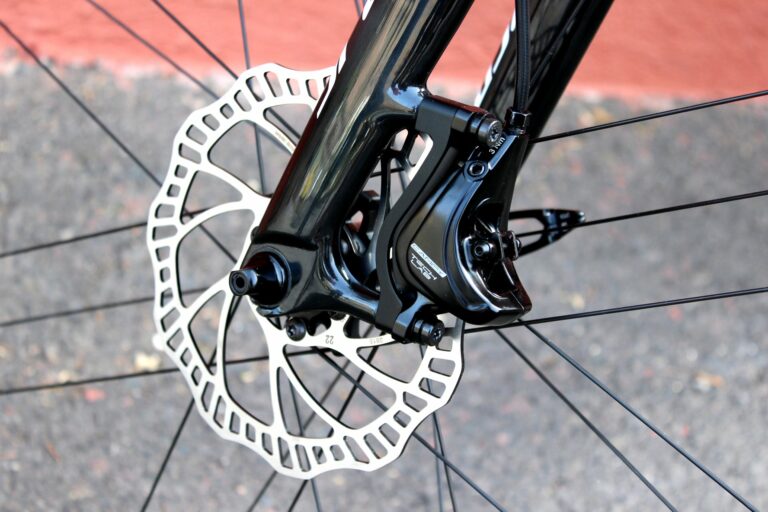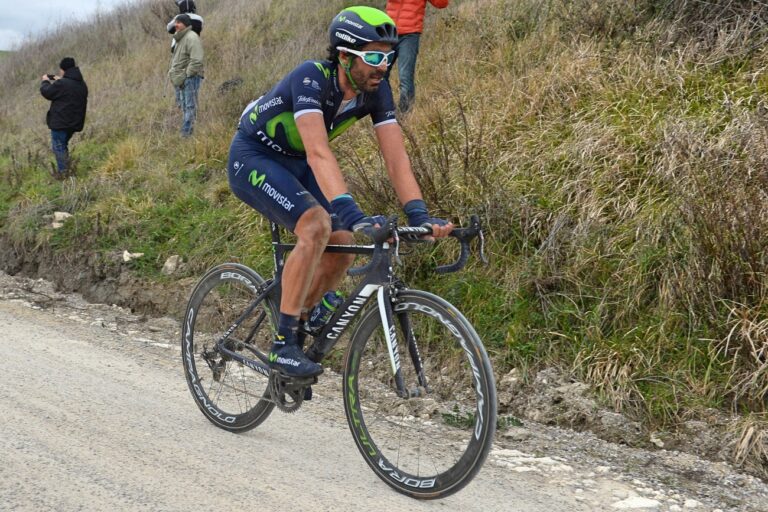But Merida – who launched the Scultura Disc ahead of the race, which Lampre-Merida rode at both the Tour of Flanders and Paris-Roubaix – believe disc brakes do have a future once safety can be assured.
A statement read: “Merida believes in the future of disc brakes on road bikes as we believe the added safety aspects (better modulation and braking performance in particular in the wet and when cornering, avoidance of rim heat up on long descents etc.) will help the prevention of crashes and outweigh the potential risks as passive member of mass crashes.
-Merida unveil Scultura Disc – to be used by Lampre-Merida at Paris-Roubaix –
“However the happenings of the recent event [at Paris-Roubaix] has shown that further disc technology improvements should be made to reduce potential risks (for example rotors with rounded edges) and we are in communication with disc brake manufacturers to push this development forward.
“At the recent launch of our Scultura Disc, which took place prior to Paris-Roubaix, we took the opportunity to discuss the pros and cons of disc brakes at road-racing with over 40 cycling journalists from around the world.
“During those discussions as well as in conversations we had with the team and other involved parties, the potential injury risks due to the usage of discs were never a priority over potential added weight, individual brake adjustment, logistics, standards and neutral support issues.
“The ranking of priorities has now changed and we will do utmost to support the safety improvements of disc brakes during racing so that not just the amateur rider but also the pro-peloton can benefit from the long lists of disc brake benefits.”



